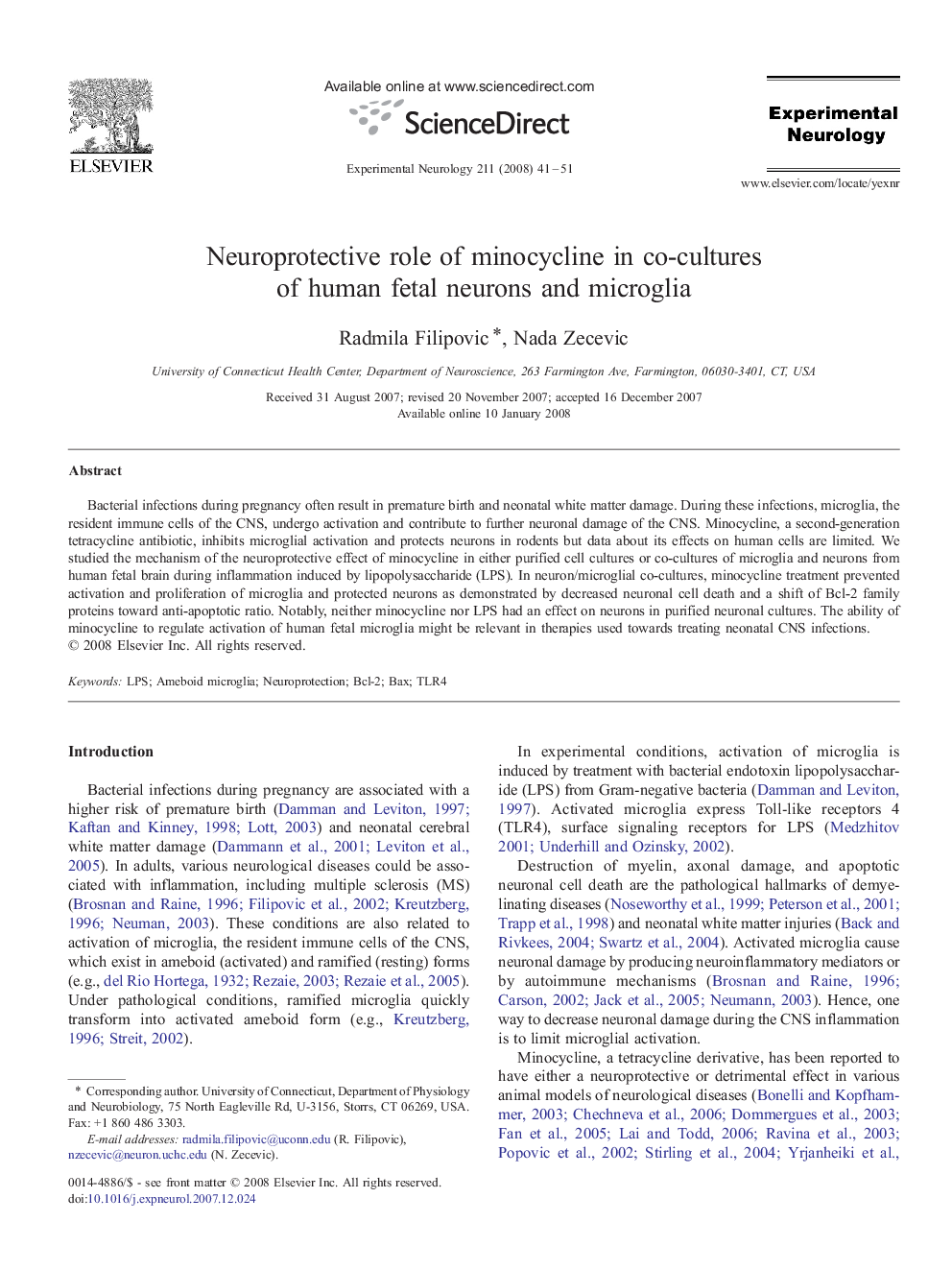| Article ID | Journal | Published Year | Pages | File Type |
|---|---|---|---|---|
| 3056656 | Experimental Neurology | 2008 | 11 Pages |
Bacterial infections during pregnancy often result in premature birth and neonatal white matter damage. During these infections, microglia, the resident immune cells of the CNS, undergo activation and contribute to further neuronal damage of the CNS. Minocycline, a second-generation tetracycline antibiotic, inhibits microglial activation and protects neurons in rodents but data about its effects on human cells are limited. We studied the mechanism of the neuroprotective effect of minocycline in either purified cell cultures or co-cultures of microglia and neurons from human fetal brain during inflammation induced by lipopolysaccharide (LPS). In neuron/microglial co-cultures, minocycline treatment prevented activation and proliferation of microglia and protected neurons as demonstrated by decreased neuronal cell death and a shift of Bcl-2 family proteins toward anti-apoptotic ratio. Notably, neither minocycline nor LPS had an effect on neurons in purified neuronal cultures. The ability of minocycline to regulate activation of human fetal microglia might be relevant in therapies used towards treating neonatal CNS infections.
